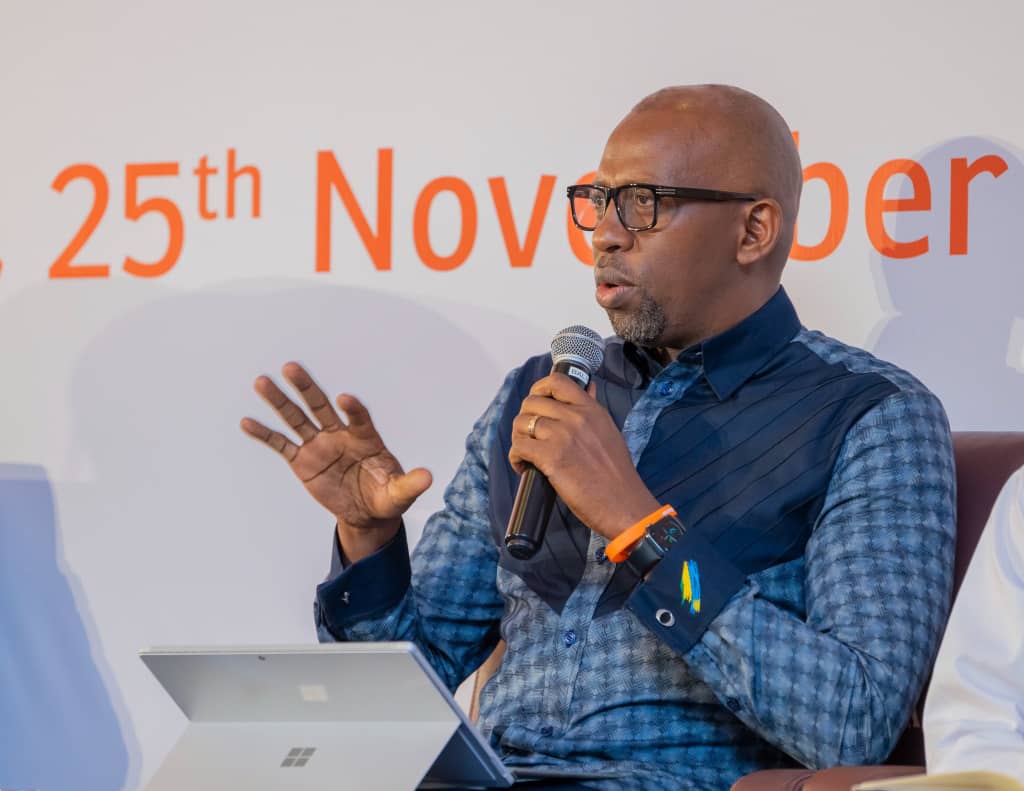The Rwanda Investigation Bureau (RIB) has cautioned the public about the dangers of gender-based violence (GBV) manifesting on social media, emphasizing the need for responsible use of digital platforms.
Speaking during the global 16 Days of Activism Against Gender-Based Violence campaign, November 25, RIB spokesperson Thierry B. Murangira addressed the misuse of terms like “femicide” and slogans such as “Men are trash”, warning that they can provoke division and undermine efforts toward gender equality.
Murangira highlighted that some Rwandans misuse feminism and gender-related hashtags online, often leading to acts of GBV.
“Our way of living has been duplicated in the virtual world. Some people use this space to attack others, perpetuating harmful ideologies that contradict the principles of gender equality,” he said.
“Same-gender violence that occurs in the physical world is also happening in the virtual space. Some people post words that undermine gender equality on their timelines, even when they have large followings. This trend is especially evident when girls open up about the gender-based violence they face. It becomes an opportunity for individuals hiding behind fake identities (catfish) to attack and destroy these girls using harsh and harmful language.”
He noted a concerning trend where individuals, including influencers with large followings, exploit their platforms to spread divisive or harmful messages. One example he cited was a social media user who posted an alarming statement promoting sexual exploitation of minors.
“RIB intervened immediately, and the person was arrested to face legal action,” Murangira confirmed.
Murangira also warned against the misuse of foreign-originated slogans like “Men are trash”, originating from South Africa, noting their potential to spark hostility and derail gender equality initiatives.
“The owners of this word have used it to describe issues within their own households, assigning their own meaning and context to it. However, this term carries a heavy connotation and is often misused. It is frequently used by both men and women, not just a few individuals. This slogan is problematic—it is heavy, provocative, and undermines gender equality. Furthermore, it does not align with our current progress or the direction we aim to move toward,” he explained.
He called for a deeper understanding of feminism, explaining, “Feminism is about fighting for equal rights and against any form of gender violence. It is not a weapon to attack one side of the gender spectrum.”
The reality of GBV in Rwanda
Contrary to claims circulating online, Murangira stated that Rwanda’s statistics show no evidence of “femicide”, though homicide cases do occur.
“Using misleading terms like ‘femicide’ creates unnecessary alarm and hinders progress,” he added, urging social media influencers to rely on accurate data and align with Rwanda’s legal and policy frameworks.

The 16 Days of Activism Against Gender-Based Violence, running annually from November 25 to December 10, aims to raise awareness and eliminate all forms of violence against women and girls.
In Rwanda, the campaign’s high-level dialogues bring together government institutions, civil society, and private organizations to create safer communities.
Minister of Gender and Family Promotion Consolee Uwimana echoed this call for collaboration.
“We urge collective cooperation to eliminate GBV. Rwanda has made significant strides since 1994, but challenges persist,” she said, pointing to domestic violence, unplanned births, and resource misuse as overlapping societal issues.
Uwimana also highlighted the impact of GBV on vulnerable populations, particularly children, who often face homelessness, malnutrition, and school dropouts as a result.
“Misunderstanding gender equality remains a barrier to eradicating GBV,” she noted, emphasizing the need for continued education and advocacy.
“We cannot achieve a GBV-free society without working together,”Uwimana concluded, urging Rwandans to unite in the fight against gender-based violence and ensure the safety and dignity of all individuals.
Global perspective on GBV
Globally, the statistics on GBV remain alarming. The United Nations reports that nearly one in three women and girls will experience physical or sexual violence in their lifetime.
In 2023, over 51,100 women were victims of femicide, with more than half of these cases perpetrated by intimate partners or family members. UN Women identifies femicide as a stark failure of societal systems meant to protect women and girls.
Furthermore, public figures, including politicians and human rights defenders, are increasingly targeted both online and offline. In conflict zones, the prevalence of GBV has surged, with the United Nations documenting a 50% increase in cases over the past year.

